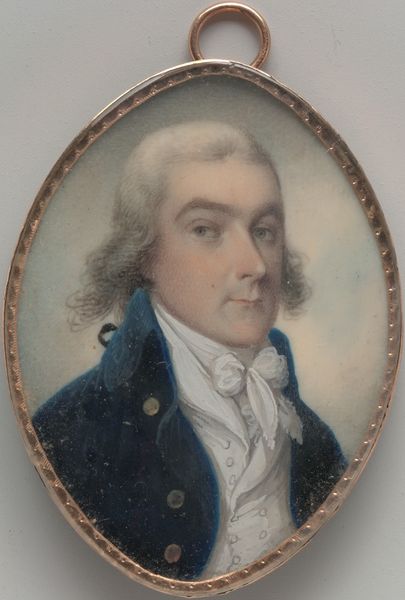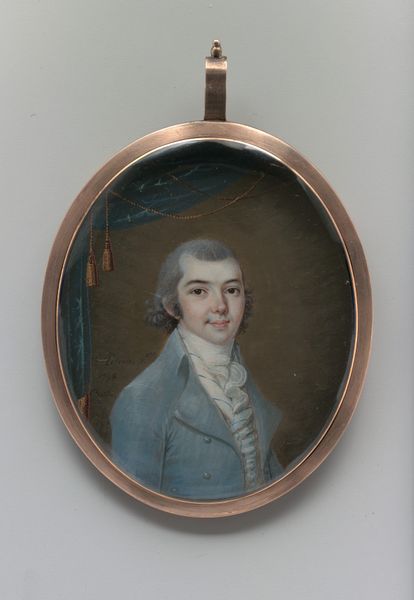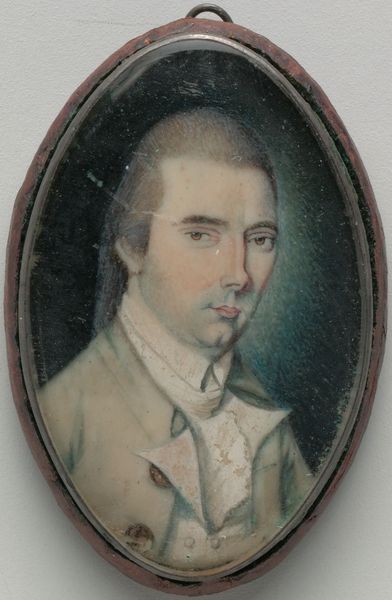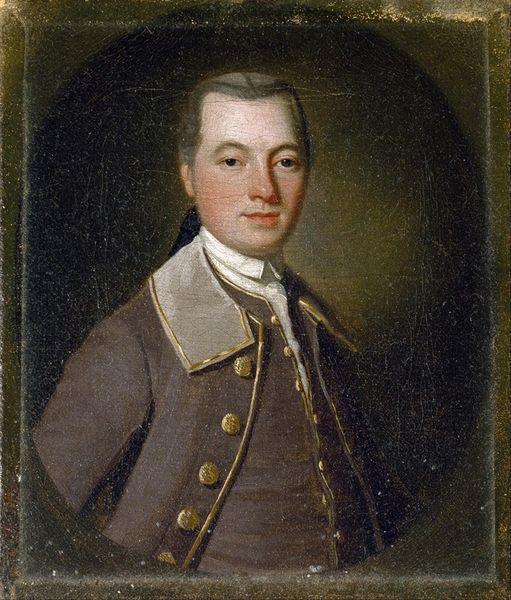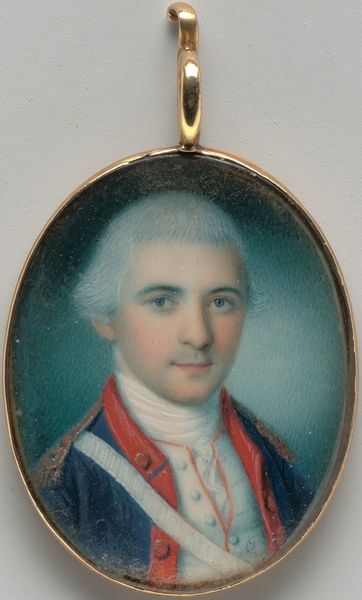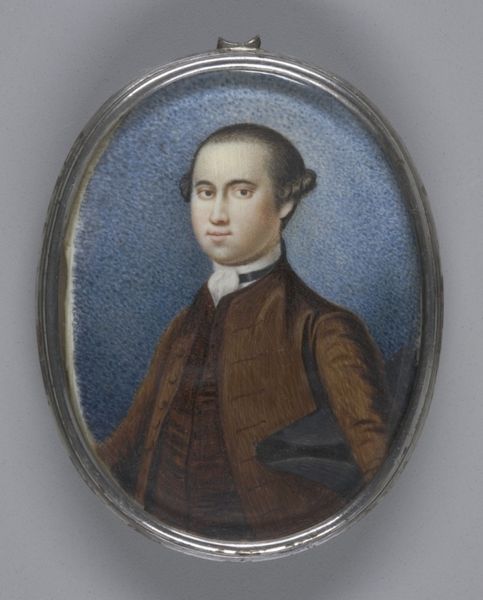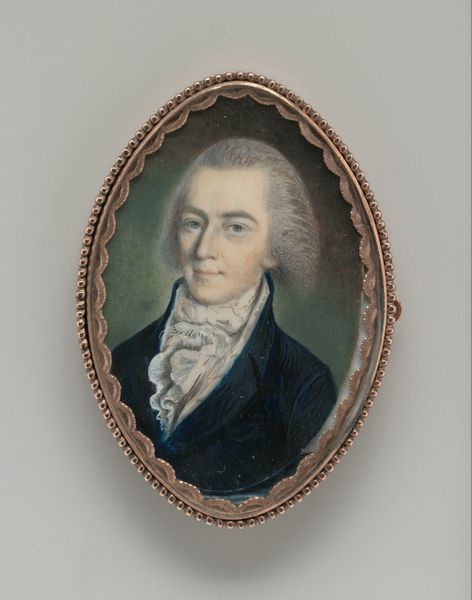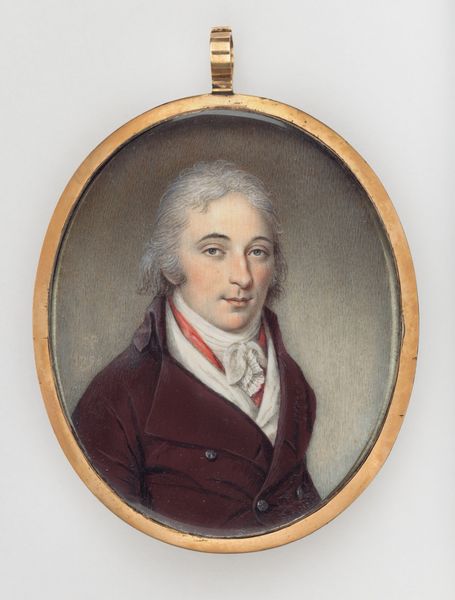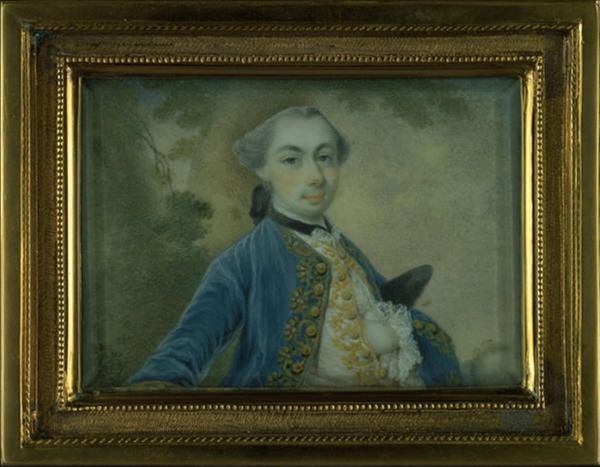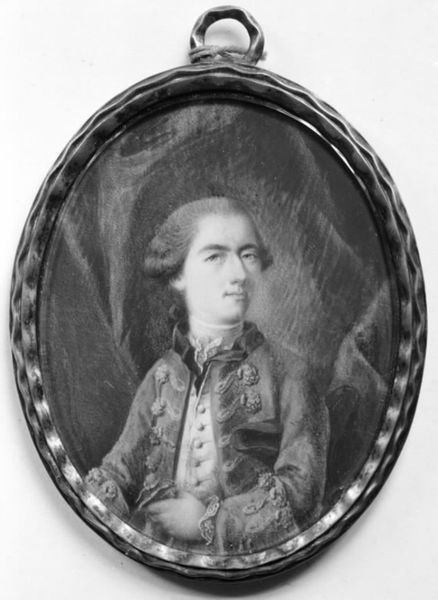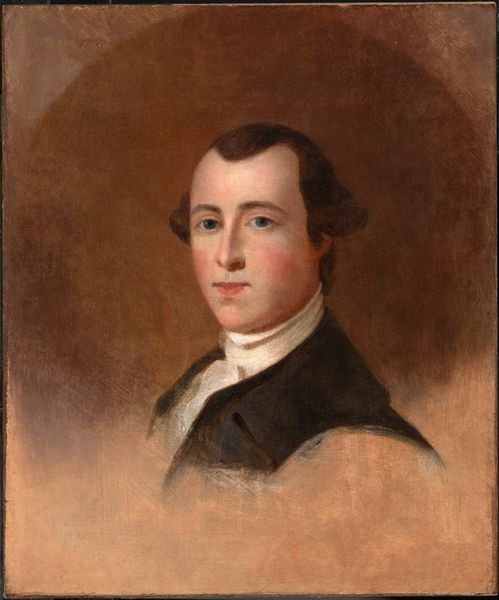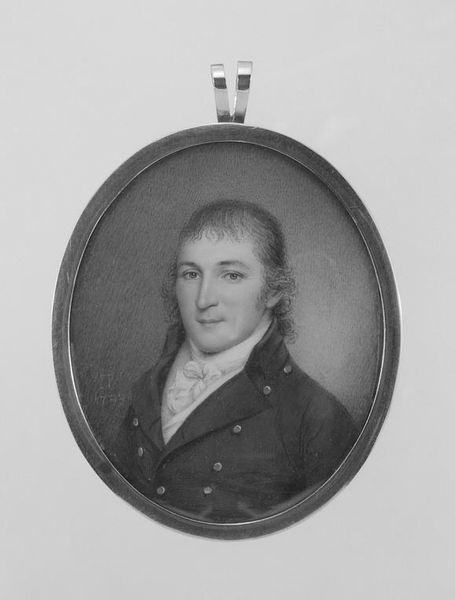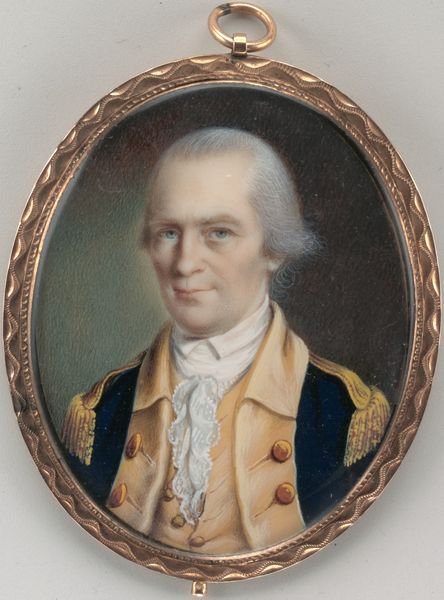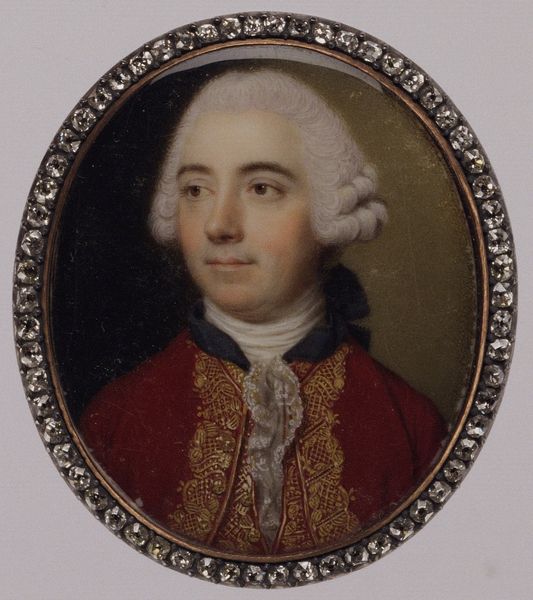
painting
#
portrait
#
baroque
#
painting
#
oil painting
#
miniature
#
rococo
Dimensions: 1 1/2 x 1 1/4 in. (3.8 x 3.2 cm)
Copyright: Public Domain
John Hesselius painted this watercolor on ivory miniature portrait of Archibald McCall sometime in the mid-18th century. Hesselius, born into a family of artists, created this intimate likeness during a time when portraiture was a key way to convey status and identity. Consider the context of the pre-revolutionary era; the painting reflects the values of the colonial elite. Archibald, with his powdered wig and tailored blue coat, embodies the image of a prosperous gentleman. Yet, these visual markers of status were intertwined with the complex social and political realities of the time. It prompts us to think about the lives and labor that underpinned this prosperity. While Archibald's portrait speaks to individual success, it is also indicative of the larger colonial system. Whose stories are not being told? What are the emotional implications of such elisions? This miniature acts as a looking glass, reflecting the stratified society of early America.
Comments
No comments
Be the first to comment and join the conversation on the ultimate creative platform.
